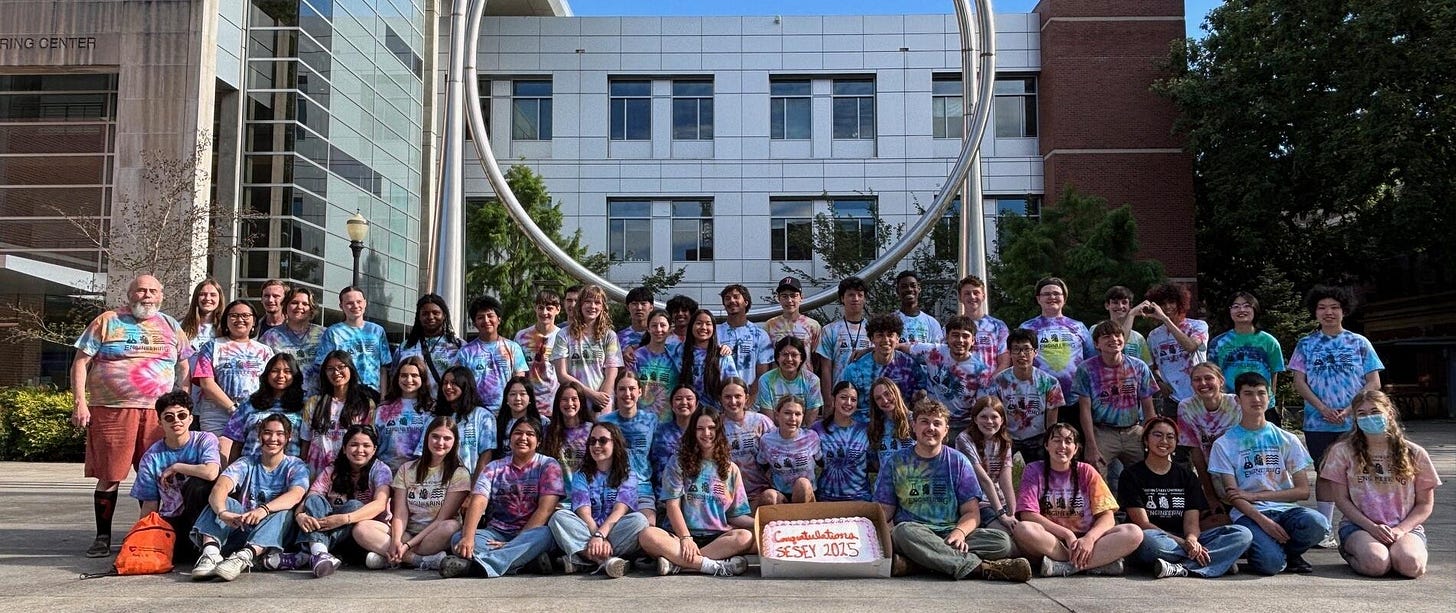[Research] Exploring the Engineering Mindset in First Year Engineering Students
2017 ASEE Annual Conference & Exposition Proceedings. Academia.edu.
BinaryBox presents a deep dive into a key research, exploring the mindset of first-year engineering students, focusing on how self-confidence, motivation, grit, and mindset influence their learning experiences, persistence, and academic success in engineering education.
This article summarizes findings from a study conducted via an optional survey with first-year engineering and computer science students at a mid-sized private U.S. university, shedding light on emerging patterns crucial for educators, students, and institutions aiming to nurture resilient, motivated engineers of tomorrow. Read the full paper
Understanding the Engineering Mindset in Early Education
Engineering education is demanding, especially for freshmen adjusting to new rigorous coursework and expectations.
While traditional measures like academic ability are important, this research emphasizes the critical role of non-academic psychological factors such as mindset and grit.
Mindset refers to students’ beliefs about intelligence and learning ability, distinguishing between
Growth mindset - The belief that abilities can be developed through effort and learning.
Fixed mindset - The belief that intelligence and talents are innate and unchangeable.
Grit captures perseverance and sustained effort toward long-term goals, even amid obstacles or setbacks.
These qualities profoundly shape how first-year students engage with challenges, maintain motivation, and persist through the difficult early stages of engineering programs.
Key Research Insights
Diversity in Mindset Among Freshmen
The study found a diverse range of mindsets among incoming engineering students
A majority showed a bias toward a growth mindset, exhibiting openness to learning and self-improvement rather than a static view of ability.
However, evidence suggested a slight shift toward a fixed mindset as students advance through their academic journey, highlighting the pressures and difficulties faced.
This indicates that mindset is not static but evolves, shaped by educational experiences, workload, and support systems, making early intervention crucial.
Self-Confidence and Motivation
Self-confidence emerged as a vital factor impacting students’ motivation and persistence. The researchers observed
Students with higher self-confidence were more motivated and engaged.
Variations were seen by gender, with female students generally showing higher grit but sometimes lower confidence compared to males.
Motivation to study engineering often linked to external influences such as family, teachers, and career opportunities.
Building self-confidence may be as important as imparting technical knowledge for student retention and success.
The Role of Grit
Importantly, grit distinguished students more likely to persist through difficulties. Gritty students
Embraced challenges and viewed setbacks as learning opportunities.
Displayed sustained effort over time, rather than becoming discouraged by failures.
Were better equipped to navigate the demanding multidisciplinary curriculum introduced to these students.
Programs fostering grit alongside mindset can enhance overall academic outcomes.
Gender and Discipline Differences
The research noted
No significant direct gender differences in mindset but nuanced patterns in confidence and grit.
Some variation in mindset and motivation profiles among different engineering disciplines.
Understanding these subtle distinctions can help tailor educational support to diverse student groups.
Implications for Engineering Education
This research underscores a few critical directions
Early Focus on Growth Mindset and Grit
Cultivating these psychological traits from the start can improve students’ resilience, engagement, and academic persistence.
Supportive Curriculum Design
Multidisciplinary curricula should include resources and interventions aimed at building self-confidence, motivation, and perseverance.
Inclusive Education
Gender and discipline-specific nuances suggest personalized support strategies could enhance inclusivity and student success.
Continuous Monitoring
Tracking mindset evolution across university years could help educators detect when support is most needed to prevent mindset shifts toward fixed beliefs.
Real World Application
Universities can implement practical measures to nurture growth mindset and grit among first-year engineers, such as
Mentorship programs pairing freshmen with experienced students or faculty.
Workshops on learning strategies, resilience, and stress management tailored for engineering demands.
Feedback systems emphasizing progress and effort over innate ability to bolster motivation.
Collaborative projects supporting community and peer learning, fostering confidence through shared success.
Conclusion
The mindset students bring to engineering education is as vital as their technical skills. This research highlights that fostering a growth mindset, solid self-confidence, and enduring grit can empower first-year students to thrive despite academic challenges, encouraging persistence and deeper engagement.
By understanding and supporting these psychological dimensions early in their studies, educators and institutions lay a foundation not only for academic success but for the development of resilient, innovative engineers ready to tackle complex problems in an evolving world.
This early exploration into engineering mindset paves the way for richer insights and educational practices.
Exploring Engineering Mindset in First-Year Engineering Students, 2017 ASEE Annual Conference & Exposition Proceedings.
Available on Academia.edu. Link to paper


